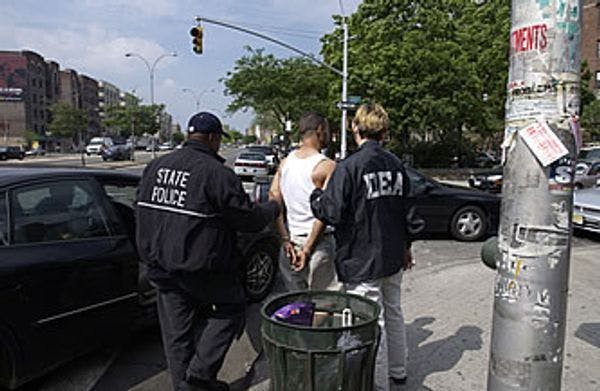Wikipedia - Public Domain
We must divest from the failed drug war locally, nationally and globally
By Colleen Daniels & Suchitra Rajagopalan - Harm Reduction International / Filter
By every measure, the global drug war has failed. It has failed to decrease drug use and sales. Drug-involved overdose deaths continue to soar around the world. And violence related to the illicit markets created by prohibition wreaks havoc on individuals and communities.
The drug war also continues to enable racist policies and practices. Black, Brown and Indigenous people are disproportionately targeted by punitive drug law enforcement and overrepresented in prison populations worldwide.
Every year over $100 billion is spent on global drug law enforcement. This is more than 500 times the amount invested in harm reduction services for people who use drugs. Prioritizing punitive enforcement over interventions which protect the health of people who use drugs is a political choice made by many governments. This approach violates human rights, drives stigma and discrimination, and has no impact on drug use. As well as being expensive for governments to implement, it places additional economic burdens on public health, communities and the individual, further amplifying inequalities.
Decades of advocacy by drug policy reformers and human rights activists have resulted in a recognition of the magnitude of the damage done by the drug war’s punitive logic. As we reimagine drug policy, it is essential that we question who is best placed to respond to drug use and sales—and that we advocate for the redirection of funds within local, national and international budgets, away from punitive drug control towards compassionate and effective health and community programs.
Topics
Regions
Related Profiles
- Harm Reduction International (HRI)
- Filter Mag
